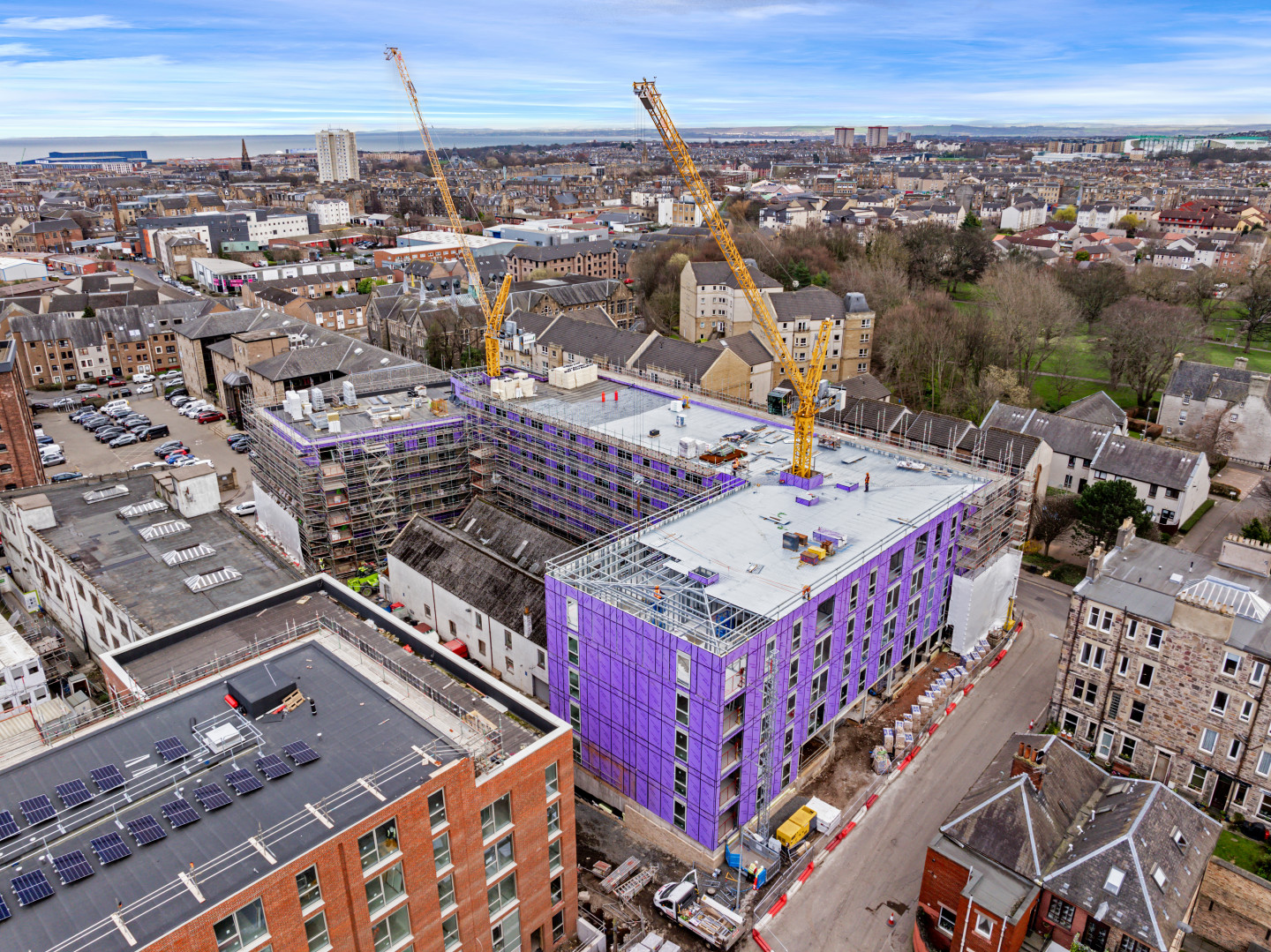Modern methods of construction may hold the key to unlocking the very real problem of the UK housing crisis
With public spending on temporary accommodation and housing benefit at a record high, the UK is on its knees to deliver homes at scale. But it's not purely a monetary issue at stake, living in temporary housing has an impact on the mental, physical and societal wellbeing of its tenants.
There is an easy solution, one already used widely in the new housing sector.
We spoke to Jimmy Overill, National Business Development Manager for Remagin, market leaders in offsite construction. They help their clients build better, quicker and more sustainably.
What do you see as the key challenges and barriers to the widespread adoption of Modern Methods of Construction (MMC) in UK housing delivery?
There is no argument that the current confidence level in the sector is the main barrier to wider uptake.
Unfortunately, this issue is compounded further by a lack of understanding as to what “MMC” actually is, which is why events such as New Homes New Ways are critical. Offsite construction isn’t “that new” – some of the businesses operating today have been around for decades and have achieved continuous sustainable growth. In recent months, this is a fact that has been forgotten considering a handful of venture capitalist backed high profile failures.
Furthermore, we are currently trying to shoe-horn an offsite approach into an entrenched eco system of procurement, contracting etc which is producing a “race to the bottom” in terms of both quality and price. This eco system is facilitating the collapse of some of the largest tier 1 contractors in the UK, so it isn’t working for anyone. We need to redesign this to realise the true benefits of offsite.
Do you feel the new Government should give the industry a push by mandating MMC?
There has been evident success through the Affordable Homes Programme (AHP) mandating MMC within HA pipelines as well as mandating MMC delivery on Homes England land disposals historically. This has facilitated discussions, which in turn have become live projects utilising offsite construction that wouldn’t have been delivered without this push from government.
We believe that Government could take this further by delivering an outcome-based procurement approach. Government could impose a standard set of deliverables based on sustainability and PMV, rewarding this with increased grant levels or longer term funding approaches. This would allow the market to identify that the most efficient way of achieving said standards would be to engage with offsite suppliers. Greater long-term engagement would create working partnerships in a stronger market organically, rather than pitching build type methodologies against each other.
In your opinion are there any game changing innovations taking place in the MMC market?
All the technologies within the offsite space are improving rapidly, whether that be how we form the structure of buildings or how we wrap them with innovative façade solutions.
In my opinion however, the best examples of innovation are not in the buildings themselves but are evident within the partnerships developing between organisations of different approaches and different sectors. Octopus’ involvement in delivering zero bills offer would be one example and another would be the strategic partnership between Remagin and McCarthy Stone which is facilitating an environment for continuous R&D into the solution whilst also producing empirical data and evidence to present back to the market for true proof of concept.
How do you feel the UK Planning System could reform in order to increase housing deliveries?
Firstly, delays in the planning system pose great disruption to our business models as we directly employ almost all of our workforce rather than operate with the sub-contractor led model which is present within traditional housebuilding. This means we can’t respond to unexpected delays by pausing our labour outputs, so it is vitally important that the planning system is reformed to aid the growth of MMC entities.
The planning process could be sped up by adopting similar approaches to that in Japan and more recently New Zealand around zoning of land. If we could phase non-developed land into zoned areas, depending on local population growth, affordability, and vacancy rates, we could fast track those sites to approval that meet local need rather than letting them join the back of the queue and be delayed unnecessarily.
Furthermore, by delivering better organised public consultation and frontloading it in the creation of local plans. We would prevent local campaigners blocking new homes that comply with the local plan.
About Jimmy Overill and Remagin
Jimmy Overill, National Business Development Manager for Remagin, which designs, manufactures, and installs 2D panelised offsite solutions, is responsible for driving delivery with our public sector partners, whilst leading on Remagin’s low rise product across the UK. Jimmy joined the Remagin business with an extensive background in offsite delivery, which includes policy creation roles at Homes England in both the Development and Affordable Housing Directorates respectively, whilst most recently leading on new business within the private sector for volumetric manufacturers. His experience in both offsite policy creation and direct delivery allows Jimmy to provide a holistic and well-informed service to our partners.
Remagin offer complete single-source offsite construction solutions, from design to installation. Operating throughout the UK and Ireland, Remagin are specialists in light gauge steel framing solutions developed for full loadbearing superstructures and for external building envelopes.

